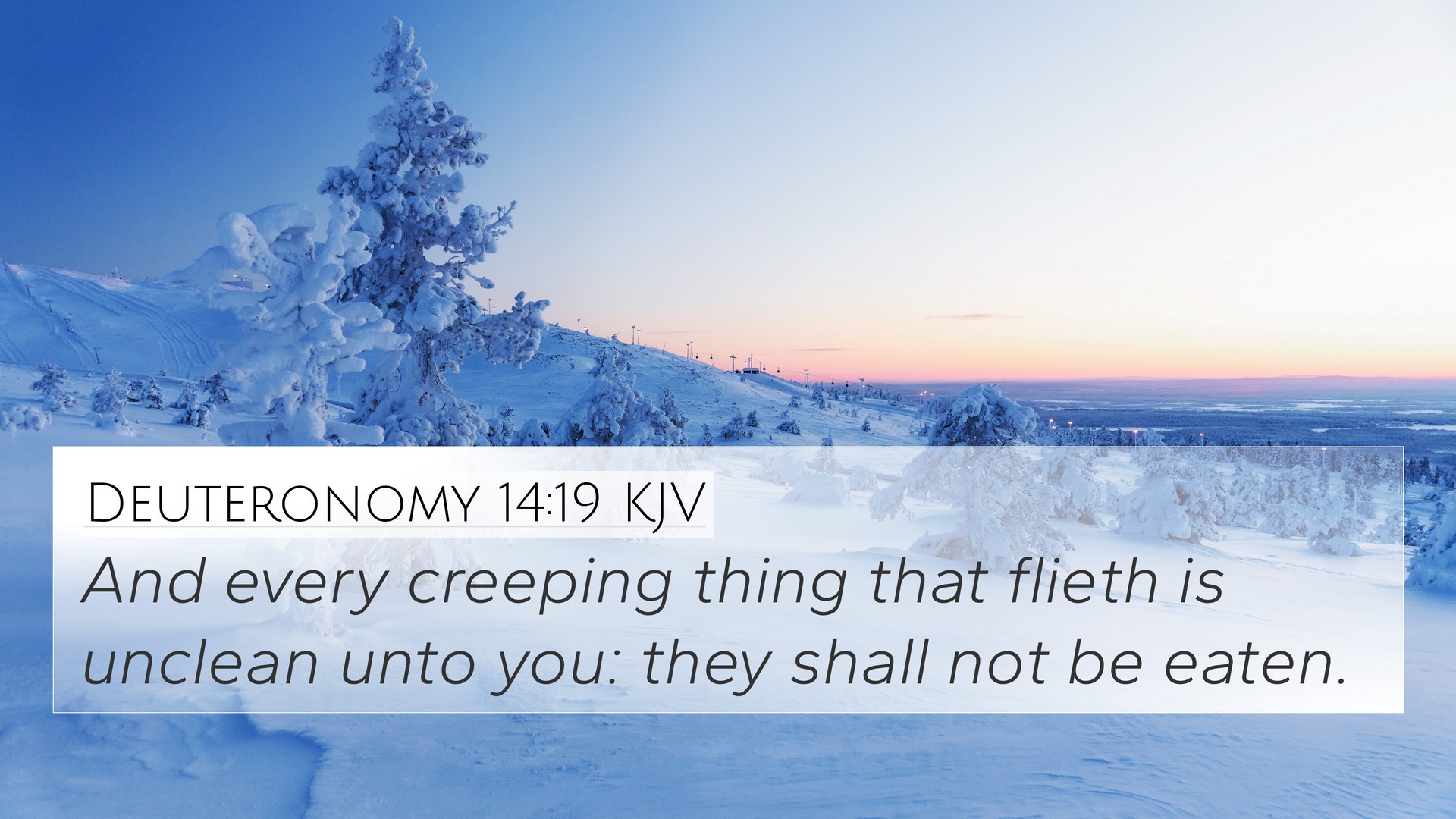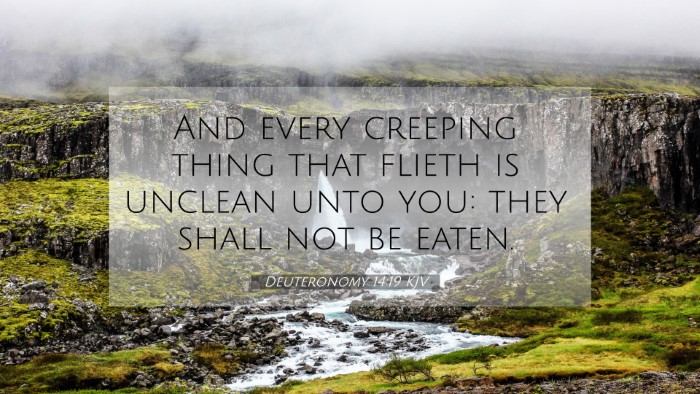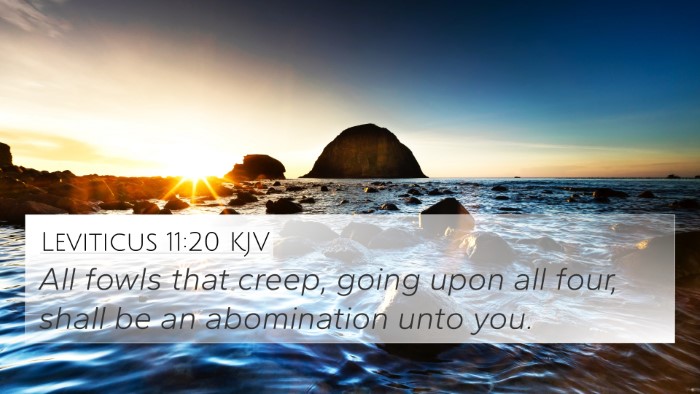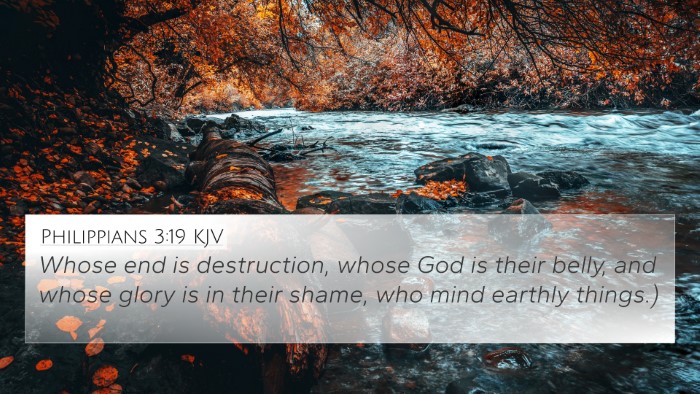Understanding Deuteronomy 14:19
Verse Text: "And every creeping thing that flieth is unclean unto you: they shall not be eaten."
The Bible verse Deuteronomy 14:19 falls within a passage outlining clean and unclean animals, which is central to the dietary laws given to the Israelites. Through various public domain commentaries, we can derive meaningful insights into this verse.
Summary of Interpretations
This verse specifically addresses certain flying insects and stipulates their unclean status. The implications of these dietary restrictions go beyond mere food choices; they reflect deeper spiritual and communal guidelines.
Commentary Insights
Matthew Henry's Commentary:
Henry posits that the prohibition of unclean creatures serves to elevate the Israelites' status as a holy people. These laws were intended to keep them distinct from other nations and serve as a reminder of their special covenant with God.
Albert Barnes' Notes:
Barnes discusses the significance of being guided by God's laws in their choices, emphasizing that physical purity is symbolic of spiritual purity. Unclean animals represent those things that can contaminate one's relationship with God.
Adam Clarke's Commentary:
Clarke highlights the comprehensive nature of the law. The dietary restrictions establish boundaries that were meant to maintain both physical health and spiritual integrity among the Israelites, thus teaching them a form of self-discipline.
Cross-References
To fully appreciate Deuteronomy 14:19, it's beneficial to explore its connections with other scripture that elaborates on the themes of cleanliness, holiness, and divine wisdom. Below are significant cross-references:
- Leviticus 11:20-23: Details on unclean flying creatures.
- 1 Timothy 4:4-5: New Testament perspective on dietary laws and thanksgiving.
- Hebrews 10:29: The idea of trample underfoot the Son of God in relation to holiness.
- Matthew 15:11: Jesus' teaching about what defiles a person.
- Isaiah 66:17: References those who eat unclean things, linking it to judgment.
- Mark 7:18-19: Apostolic affirmation that all foods are clean.
- Romans 14:14: Paul’s view on unclean foods being clean if received with thanksgiving.
Thematic Connections
The themes of purity and separation extend deeper into the spiritual landscape of the Bible. The dietary restrictions can be seen as metaphors for moral discipline:
- Holiness: These laws call for a separation from impurities, mirroring the need for moral holiness in all aspects of life.
- Obedience: Adhering to these laws illustrates one's commitment to God's will.
- Faith and Trust: Trusting in God's guidelines fosters a reliance on divine wisdom over human reasoning.
Conclusion
In summary, Deuteronomy 14:19 is not just a legal stipulation but a profound reflection of God's intent for His people to be distinct, holy, and obedient. By engaging with this verse through comprehensive cross-referencing and thematic exploration, one can appreciate the layers of meaning embedded in the text.
SEO Keywords Integration
The discussion surrounding Deuteronomy 14:19 naturally incorporates various search terms related to Bible verse interpretations, such as Bible verse cross-references, connections between Bible verses, and thematic Bible verse connections. As we explore scripture, understanding how to utilize tools for Bible cross-referencing becomes essential for deeper study. Exploring identifying connections between the Old and New Testament can provide additional context to this dietary law. For readers seeking thorough understanding, resources on how to use Bible cross-references, along with comprehensive guides can enhance their exploration.




